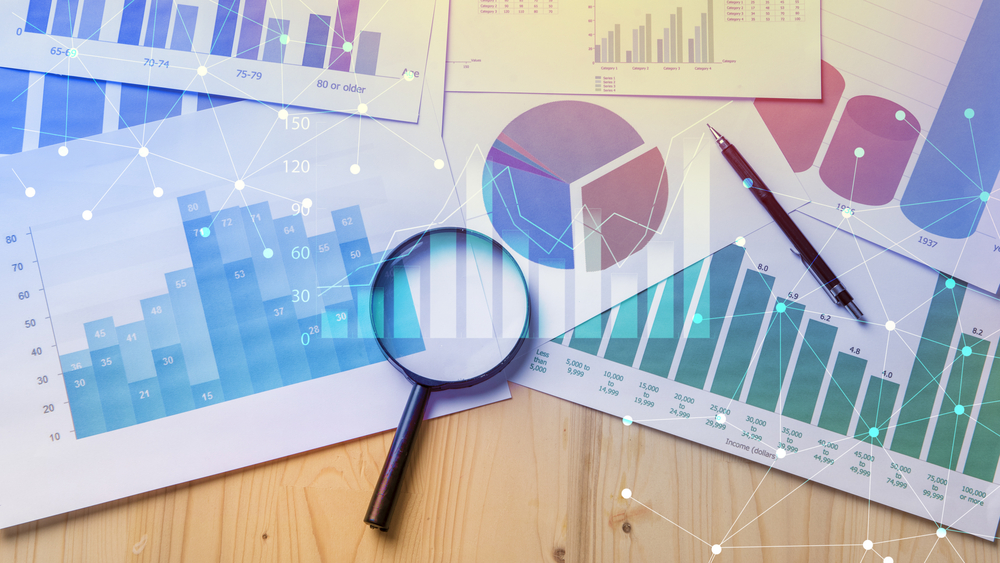Top 12 Ways Artificial Intelligence Will Impact The Textile Industry


Summary: Artificial Intelligence is the future of textile manufacturing. Whether it's used to automate production or help factories improve quality, AI has the potential to revolutionize the entire industry from top to bottom.
The textile industry impacts nearly every facet of our life. From clothing to home decor, textiles are everywhere. However, like many other industries, textile manufacturers face significant challenges like high competition, supply chain disruptions, rising costs, and low efficiency.
Artificial Intelligence (AI) has the potential to revolutionize the textile industry. It can provide solutions to these challenges and unlock new opportunities for growth and innovation.
Let's explore how AI will impact the textile industry, and how textile businesses can leverage AI to stay competitive.
1. Optimize Textile Production
Artificial intelligence and Machine Learning (ML) can help textile manufacturers optimize production processes, increase efficiency and reduce costs. Textile mills can use AI-powered robots to automate repetitive tasks like material handling and cutting to improve precision and accuracy, leading to higher productivity. They can use AI to analyze large amounts of data from textile production to optimize production schedules.
2. Auto-Schedule Predictive Maintenance
Textile businesses can use AI-powered sensors and monitoring systems to predict when equipment is likely to fail and schedule maintenance accordingly. This can help reduce downtime and increase productivity. Predictive maintenance allows textile companies to optimize their maintenance schedules, reducing the need for unnecessary maintenance, further increasing efficiency.
3.Color Matching & Dyeing
AI can be used to improve the precision and accuracy of color matching and dye formulations. With AI, textile companies can identify the ideal color match and dye formulation for a specific product. AI-powered systems can predict color fading, enabling businesses to make adjustments to the dye formulation, and reduce waste and costs. AI can also optimize the dyeing process, reducing water and energy consumption.
4.Quality Control & Defect Detection
AI-powered sensors, cameras, and ML algorithms in textile factories can improve the accuracy and efficiency of quality control processes. AI-powered cameras can be used to identify defects such as holes, stains, and uneven stitching, in real time, and with a high degree of accuracy. Textile companies can reduce the need for human inspection by using Artificial Intelligence, which can bring down costs and human errors.

5.Supply Chain Optimization
Utilizing AI in textiles can predict demand, optimize production schedules, and manage inventory levels in real time. AI-powered systems can identify and mitigate supply chain risks, where potential issues are addressed proactively. AI not only improves efficiency and reduces costs, but it also leads to faster time-to-market, better customer service, and increased competitiveness.
6. Inventory Management
Textile companies can use AI to analyze sales data and predict future demand to make more informed decisions about inventory levels, reducing the risk of stockouts and overstocking. Using AI in textile companies can help identify slow-moving items, allowing them to adjust their inventory and distribution strategies.
7. Textile Design Assistance
AI can be used to help textile designers create new patterns, textures, and designs. They can employ ML and generative AI to create new designs faster and more efficiently. This can increase creativity and innovation in textiles. AI-powered systems can also be used to analyze consumer preferences, allowing designers to create designs that are more likely to appeal to customers.

8. Market Analysis & Demand Forecasting
AI can help analyze textile market trends and makeforecasts. By analyzing large amounts of data, such as sales data, consumer preferences, and industry trends, textile companies can gain valuable insights into the market and make more informed business decisions. Additionally, AI-powered systems can be used to predict future market trends, allowing textile companies to proactively adapt to changes in the market.
9. Energy Management
AI can improve energy management in textile factories by regularly monitoring energy consumption.AI in textile mills can identify areas where energy is being wasted and take steps to reduce consumption. By using AI for energy management, textile companies can reduce energy costs, increase efficiency and minimize their environmental impact. Furthermore, this can help textile companies to comply with energy regulations and reduce their carbon footprint.

10. Virtual Showroom Simulation
AI-powered virtual and augmented reality technology can be used to create immersive virtual showrooms. Textile companies can use this technology to showcase their products to customers in more interactive and engaging ways. Virtual reality can be used to simulate the production process, allowing textile companies to test new ideas and designs.
11. Pattern Manipulation
AI can automate the process of creating patterns, reducing the time and costs associated with manual cutting. AI-powered systems can help optimize patterns, reducing fabric waste and increasing efficiency. This technology can also be used for grading patterns, allowing textile companies to create multiple sizes of a pattern with minimal adjustments.
12. Fabric Sorting
AI algorithms can be used to sort fabrics by color, texture, and other characteristics. Textile mills can use these sorters when preparing orders for customers so they don’t have to sort them themselves at their facilities or send them back if there is an error in ordering them. This saves time and money for both parties involved in the transaction.

Key Takeaways
- AI can help optimize supply chain logistics and ensure that raw materials are delivered on time, saving money and improving quality.
- With AI, machines will be able to make smarter decisions about when, where, and what to produce, which will help reduce costs and waste at textile mills.
- AI will allow for more efficient data collection which will make it easier for companies to manage their supply chains effectively.
Partner with Fashinza today to take advantage of the possibilities that AI offers for your business.



















